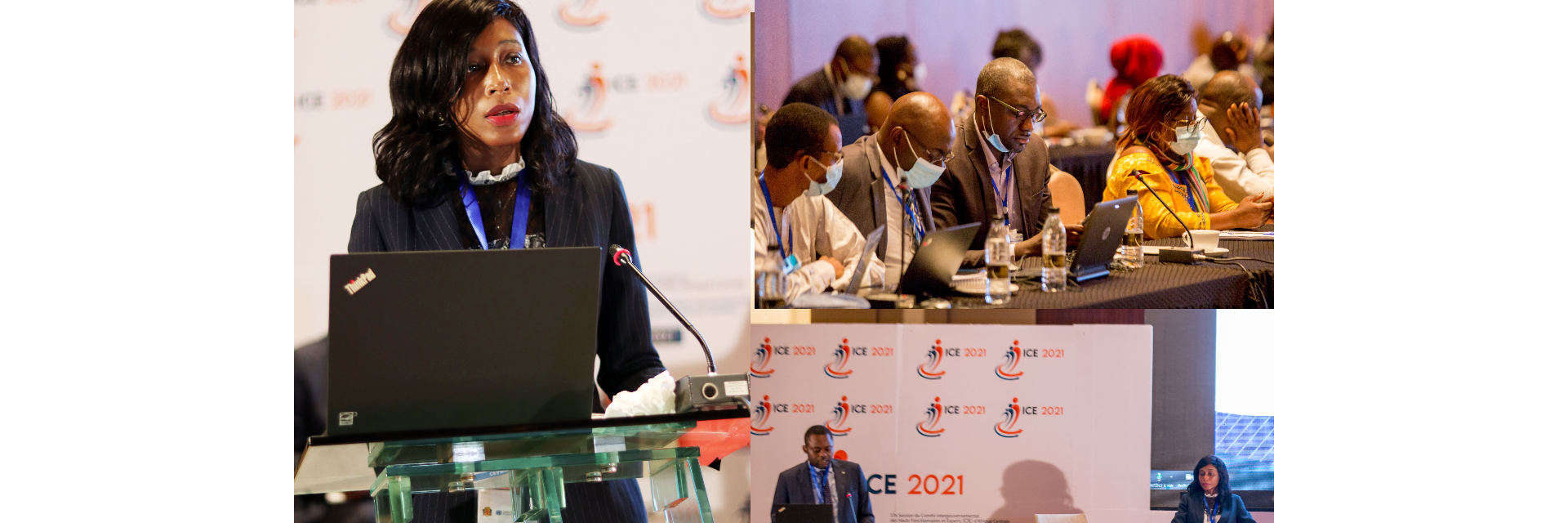Brazzaville, 11 December 2021 (ECA) - A draft report of the Central Africa Office of the United Nations Economic Commission for Africa (ECA) urges Central African countries to “capitalize on their unrivalled renewable energy potential to accelerate economic diversification.”
On 10 December 2021, experts from all the countries of the sub-region approved the ECA report which will soon be presented to policymakers. The experts recommended in particular to ECCAS and the member States of the sub-region to adopt a sub-regional policy on renewable energy and to harmonize them at country level.
They also expressed the need to strengthen the legal and institutional frameworks at national and sub-regional levels to support the development of renewable energy in Central Africa and then harmonize the relevant national policies.
Given the limited financing opportunities, the experts recommended greater focus on available endogenous funding and that priority be given to small- or medium-sized projects. Accordingly, they called for a second prioritization process of the most pressing integration projects identified by ECCAS in the area of renewable energy in order to select only one or two at a time as pilot projects.
To ECA and development partners, the experts urged for enhanced advocacy with policymakers for greater political will for the development of renewable energy solutions. ECA and partners were also called upon to help build the capacity of sub-regional experts, particularly by tooling them with techniques for designing and negotiating bankable projects.
In 2020, installed electricity capacity in Central Africa stood at 13.81 Gigawatts, with the predominance of hydroelectricity followed by thermal energy. The potential of renewable energy in the sub-region is estimated at 234 for biomass, 874 for concentrated solar-thermal power (CSP), 1989 for solar Photovoltaic (PV) and 771 for wind energy. This is a unique capacity which allows Central Africa to achieve an energy mix and also to boost its electrical power for industrialization and social development needs (health, education, household).
The countries of Central Africa are now aware and committed to turning their backs on the volatile and unsustainable resources rent with a low impact on job creation, poverty reduction and growth intensification. To add value to their exports, it is necessary to strengthen economic structures by diversifying and adding value to exports.
For Nadia Ouédraogo, Economist at ECA, the challenge and the relevance of introducing renewable energy solutions into the energy power stems from the fact that “renewable energy solutions enable access to remote areas through small decentralized electrification. Increasing the energy supply generated by the use of renewable energy sources would further boost the production of goods and services as well as the production of new goods and services that are otherwise not viable. Harnessing renewable energy would increase labour productivity through the domestication of technology. Moreover, this would make it possible to work longer hours, and especially at night”.
Nadia Ouedraogo posited that “the promotion of inclusive and technology-intensive industrialization and the structural change desired by Central Africa to consolidate its socio-economic development cannot be achieved without access to sustainable energy services”.
In the momentum built up at the end of the ad hoc meeting on renewable energy, experts from Central Africa, in particular from the Economic Community of Central African States (ECCAS), reckoned that public/private partnerships are an effective engine to be sought rapidly to facilitate the creation of a viable renewable energy technology market in the sub-region.
The said meeting was held during the 37th session of the Intergovernmental Committee of Senior Officials and Experts for Central Africa (ICE), convened by ECA’s Sub-regional Office for Central Africa.
-END-
Media Contact
Abel Akara Ticha - Communication Officer
Economic Commission for Africa
637, rue 3.069, Quartier du Lac, Yaoundé, Cameroon
Phone: +237 222504348
E-mail: akara@un.org

